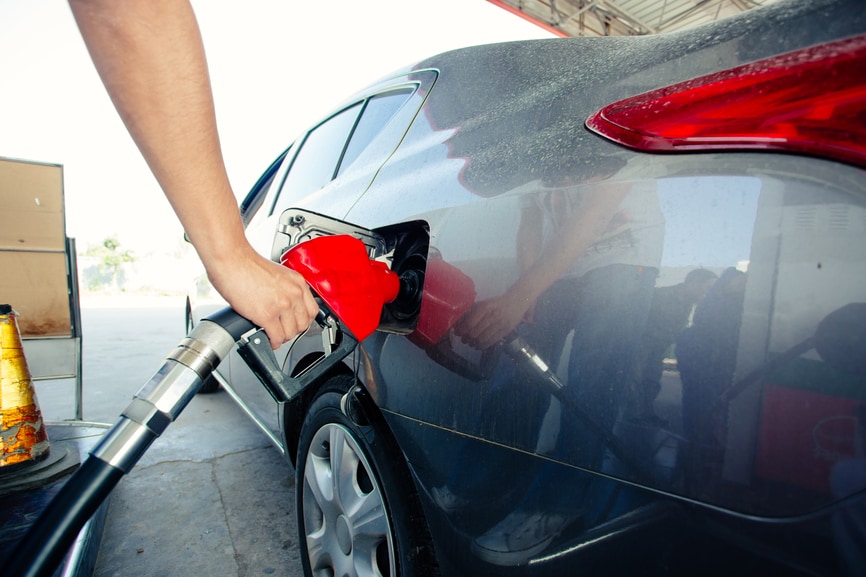What Is Form 8911: Alternative Fuel Vehicle Refueling Property Credit
In light of rising gasoline prices and environmental concerns, consumers have become more receptive to buying cars and trucks that run on types of fuel other than gasoline. The U.S. government introduced a tax incentive to encourage the installation of facilities to store or dispense alternative fuels in 1992. That incentive has evolved into a tax credit that also applies to equipment that recharges electric cars. If you equipped your home or business to accommodate alternative fuel vehicles, you may be able to use Form 8911: Alternative Fuel Vehicle Refueling Property Credit to reduce your federal tax obligation.

Key Takeaways
- The Alternative Fuel Vehicle Refueling Property Credit is available to individuals who buy a battery-powered car and install new EVCSE at their main home to recharge its batteries.
- The maximum credit for buying a battery-powered car and installing new EVCSE is $1,000 or 30 percent of the installation cost, whichever is lower.
- Several states offer their own tax incentive for charging equipment installation.
- The maximum Alternative Fuel Vehicle Refueling Property Credit for providing or dispensing alternative fuels is the lesser of $30,000 or 30 percent of the installation cost per location.
Key terms
According to the U.S. Department of Energy, the Energy Policy Act of 1992 set the definition of alternative fuels. However, the Internal Revenue Service considers electricity and fuels that consist of 85 percent or more of natural gas, liquefied or compressed natural gas, propane, hydrogen or ethanol to be alternative fuels, in addition to mixtures of biodiesel, diesel and kerosene with 20 percent or more volume derived from a biodiesel fuel. Storage tanks, dispensing equipment and electric vehicle charging supply equipment, or EVCSE, count as refueling property, according to the IRS.
Energized individual returns
According to Consumer Reports, dozens of pure electric vehicles (EVs) are expected to hit the market by the end of 2024. If you buy a battery-powered car and install new EVCSE at your main home to recharge its batteries, you may be able to trim your tax bill through the Alternative Fuel Vehicle Refueling Property Credit. The maximum credit is $1,000 or 30 percent of the installation cost, whichever is lower.
TurboTax Tip:
If you’re a business owner who provides or dispenses fuel for vehicles powered by alternative fuels, you may qualify for the Alternative Fuel Vehicle Refueling Property Credit when you first install new storage tanks or dispensing equipment.
Dispensing business incentive
The U.S. had over 61,000 publicly accessible EV charging stations in early 2024 and the number continues to grow to keep up with the strong demand brought by the growth in EV sales. If you are a business owner who provides or dispenses fuel for vehicles powered by alternative fuels as defined by the IRS such as electricity, you may qualify for the Alternative Fuel Vehicle Refueling Property Credit when you first install new storage tanks or dispensing equipment to serve your customers. You cannot include the cost of any buildings, and the property or equipment must be at the location where you put the alternative fuel into vehicle tanks. The maximum credit per location is the lesser of $30,000 or 30 percent of the cost.
Keep state taxes in mind
The Alternative Fuel Vehicle Refueling Property Credit, like all federal tax credits, does not reduce your state taxable income. Several states, including Louisiana and Oregon, offer their own tax incentive for charging equipment installation, so if you file Form 8911 with the IRS, you may be able to take advantage of a similar credit on your state tax return.
With TurboTax Live Full Service, a local expert matched to your unique situation will do your taxes for you start to finish. Or, get unlimited help and advice from tax experts while you do your taxes with TurboTax Live Assisted.
And if you want to file your own taxes, you can still feel confident you'll do them right with TurboTax as we guide you step by step. No matter which way you file, we guarantee 100% accuracy and your maximum refund.













